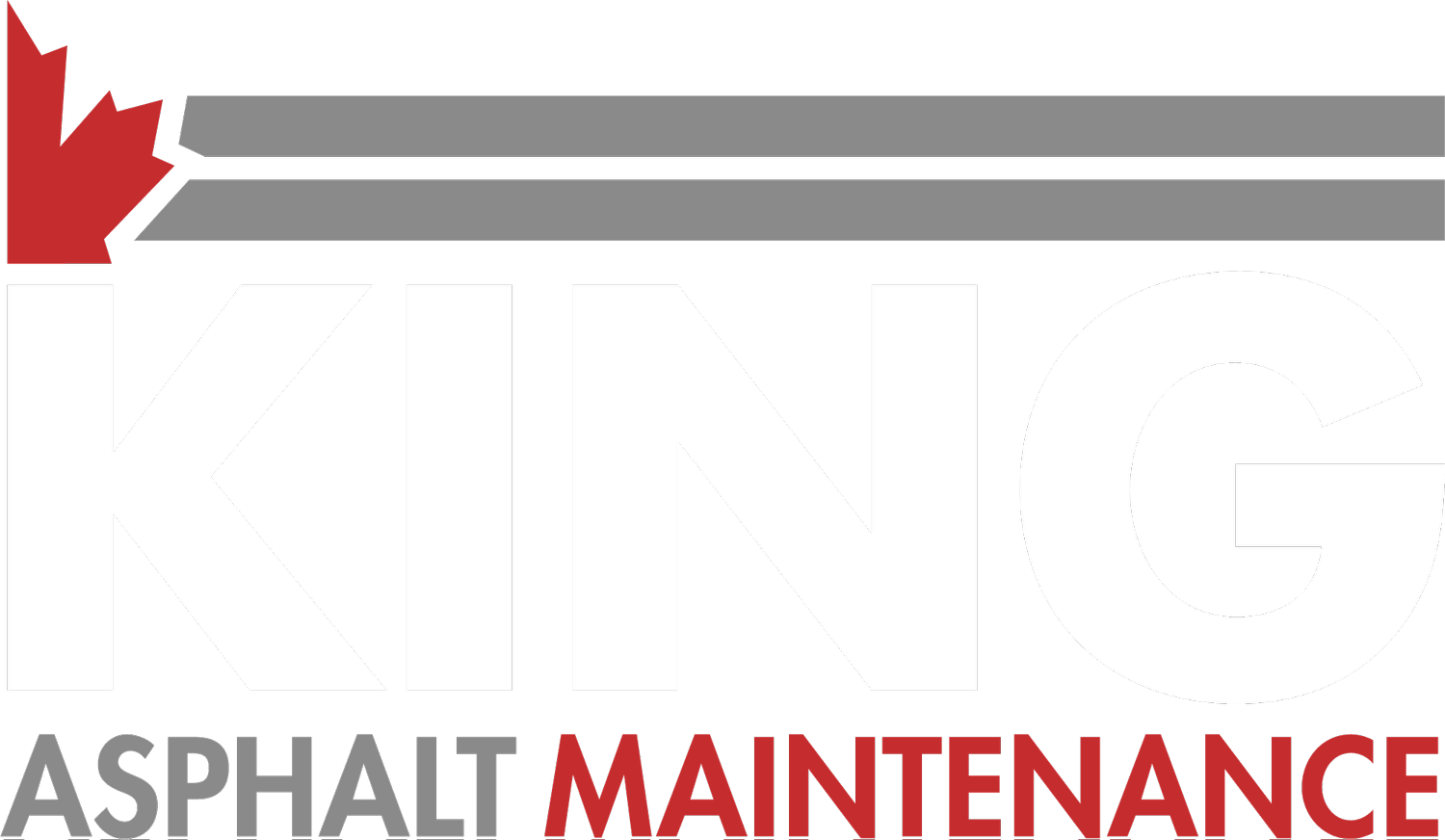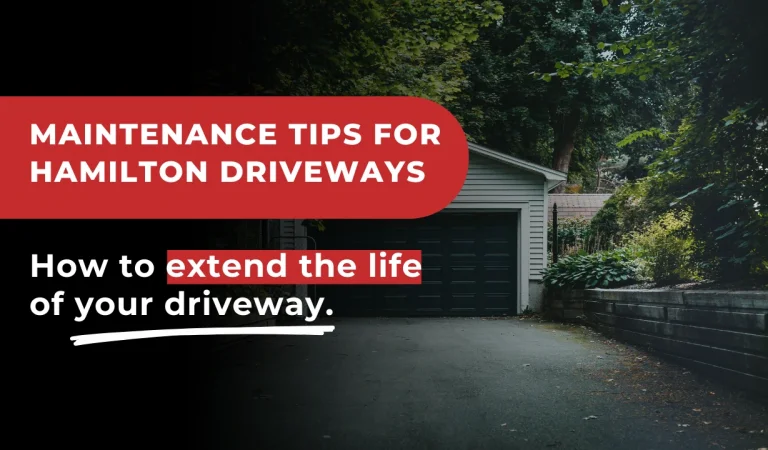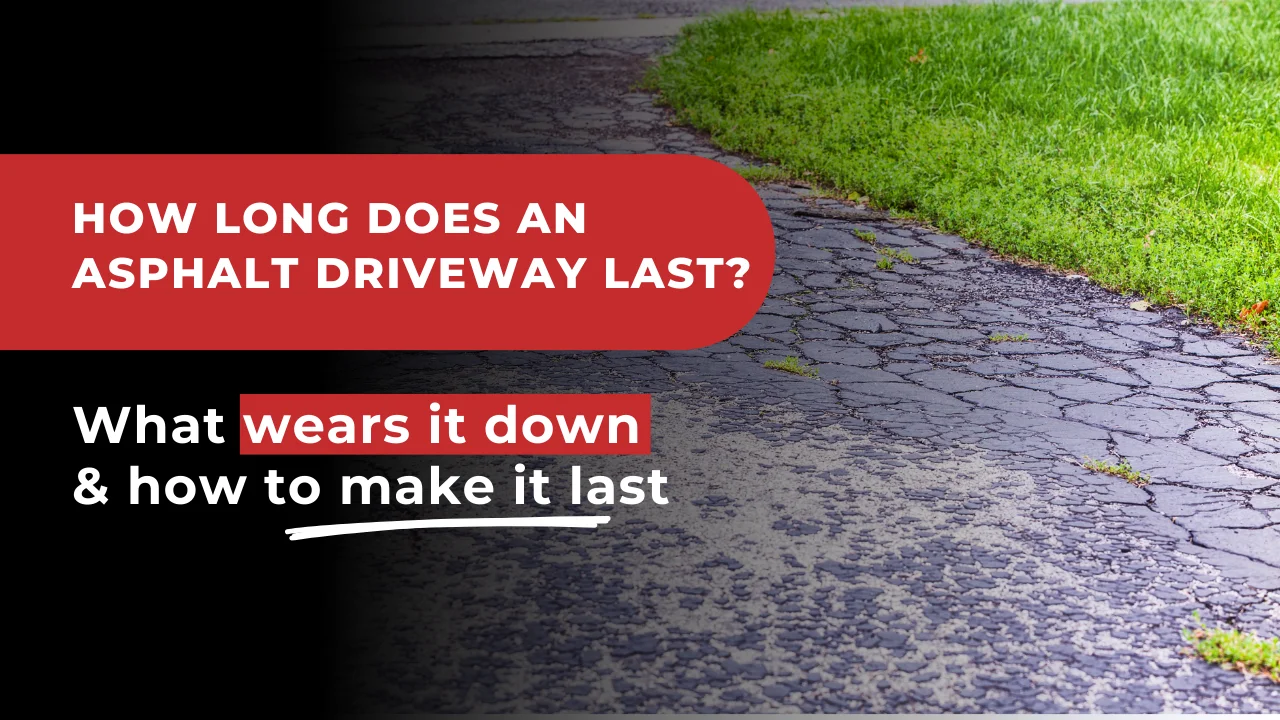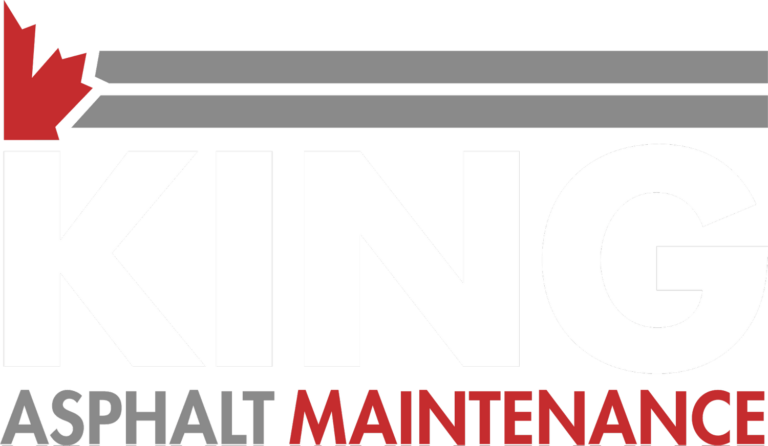Asphalt is a popular choice for driveways due to its affordability, durability, and ease of installation. Compared to other paving materials like concrete or brick, it’s also much more cost-effective, making it a great option for homeowners and businesses looking to cover larger areas. With our asphalt driveway maintenance tips, it can last anywhere from 15 to 20 years, even in areas with challenging weather conditions like Hamilton.
The keywords here are maintenance and seasonal driveway care. To get the most out of your asphalt driveway, you’ll want to do more than ‘set it and forget it.’
In this article, we’ll share some tried and true asphalt driveway maintenance tips, answer common questions about how to maintain asphalt driveway surfaces, and explore how Hamilton’s weather plays a role in the upkeep of your pavement.
Should You Spray Water on a New Asphalt Driveway?
You may wonder whether your new asphalt driveway needs to be sprayed. The answer? It’s usually not necessary.
Fresh asphalt contains oils that need time to settle into the surface. Spraying water on a new driveway could disrupt this process, leading to cracks or weakening the structure. Instead, focus on letting the asphalt cure naturally and avoid heavy traffic or parking on the surface for the first 24-48 hours to allow the oils to set in properly. This simple step makes your asphalt stronger and minimizes the need for early repairs.
What Happens If You Don’t Roll Asphalt?
Rolling asphalt is a key part of the paving process. If it isn’t rolled properly, air pockets and uneven surfaces can form, which will cause long-term damage. These air pockets trap moisture, which then expands during Hamilton’s cold winters, making the asphalt more prone to cracking and potholes. Rolling asphalt also tightly compresses the material, sealing it to prevent water penetration.
Skipping this step could result in faster wear and tear, which in turn leads to expensive repairs or early replacement. A properly rolled asphalt surface is smooth, resilient, and better equipped to handle Hamilton’s freezing winters and warm summers, ensuring a longer lifespan.
How Can You Maintain Asphalt Driveway Surfaces?

Maintaining an asphalt driveway requires proactive care. Here are some asphalt driveway maintenance tips to keep your surface in great condition:
- Ensure Proper Drainage: Without proper drainage, water can pool on the surface, weakening the structure over time, so make sure your driveway or parking lot has a slight slope to guide water off the surface. You can also install drainage systems to redirect water, which will help prevent cracks and potholes from forming due to excess moisture.
- Fill Cracks Quickly: Cracks in asphalt are inevitable over time, but how quickly you address them makes all the difference. Filling cracks as soon as they appear prevents them from growing and keeps water from seeping into the foundation. In Hamilton’s climate, where freezing and thawing are common, water that seeps into cracks will expand and widen the damage. The best time to fill cracks is during the warmer months, before winter sets in.
- Sealcoat Regularly: Sealcoating your driveway adds a protective layer to your asphalt surface, shielding it from harmful UV rays, water, and chemicals. A good rule of thumb is to apply sealcoat every two to three years. This process not only extends the life of your asphalt but also keeps it looking fresh and smooth.
- Limit Heavy Loads: While asphalt is durable, it can still be damaged by excessive weight over time. Try to avoid parking heavy trucks or machinery on your driveway or parking lot, as this can create depressions or cracks. Spreading the load by parking in different areas can help distribute the pressure and prevent localized damage.
How Do You Keep Asphalt Looking New?
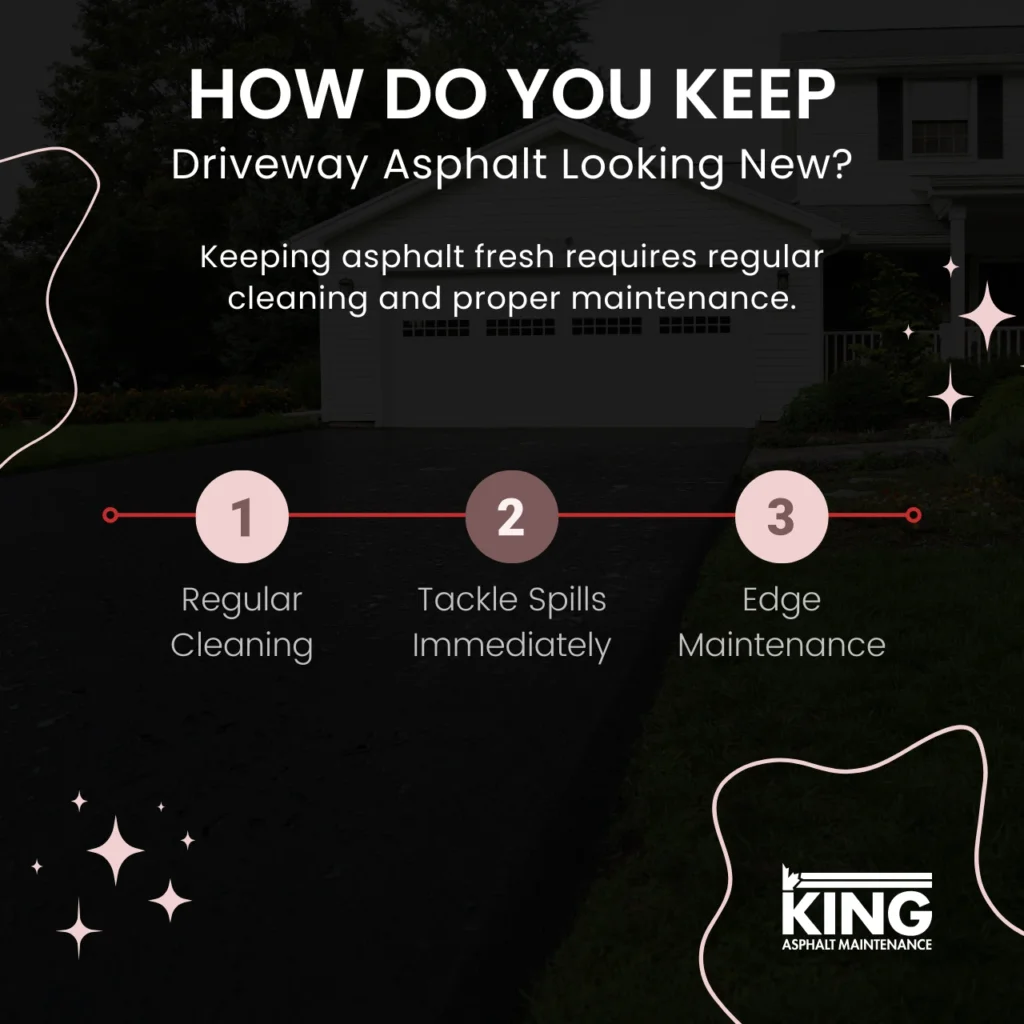
Keeping asphalt looking new calls for a combination of seasonal driveway care and maintenance. Here are a few asphalt driveway maintenance tips and tricks for maintaining that fresh, smooth appearance:
- Regular Cleaning: Dirt, debris, and oil stains not only make your asphalt look worn but can also contribute to faster deterioration. Regularly sweeping and occasionally power washing your driveway or parking lot will prevent buildup. Removing leaves and dirt also ensures proper drainage by keeping water from pooling on the surface.
- Tackle Spills Immediately: Oil, gasoline, and other automotive fluids can soften asphalt and lead to long-term damage. If you notice any spills, it’s important to clean them up right away. Using a degreaser or soap solution and a stiff brush will help remove the stains and prevent the asphalt from weakening.
- Maintain Asphalt Driveway Edges: The edges of your asphalt surface are more vulnerable to damage. Keeping the edges supported with proper backfill, like gravel or soil, can prevent crumbling or cracking along the perimeter. Avoid driving too close to the edges to reduce pressure and wear.
Hamilton’s Weather and Its Impact on Asphalt Paving
The Hamilton region experiences cold winters with frequent freeze-thaw cycles, which can be hard on asphalt surfaces. As water seeps into cracks, it freezes, expands, and causes the material to break apart. During the summer, the city’s hot weather can soften the asphalt, making it more prone to damage from heavy loads or sharp objects.

To combat these weather challenges, you need to stay on top of regular maintenance. Filling cracks before the first frost and sealcoating your driveway will protect against UV damage in the summer are key steps in ensuring your asphalt survives Hamilton’s seasonal extremes.
How Frequently Should Paving Be Inspected?
Ideally, you should inspect your asphalt paving at least once a year. The best time is in the spring, after winter has passed so that you can assess any damage caused by freezing temperatures and snow. Look for cracks, potholes, drainage issues, and any signs of wear that might need to be addressed. Regular inspections allow you to catch minor issues early, saving you from extensive repairs down the road.
What Is the Average Lifespan of Asphalt Paving?
With proper care, the average asphalt driveway lifespan is anywhere from 15 to 20 years. Its lifespan depends on several factors, including the weather, how often it’s used, and how well you maintain asphalt driveway edges and fill in small cracks.
Hamilton’s fluctuating climate, with cold winters and hot summers, can cause faster wear and tear. Still, by following these asphalt driveway maintenance tips, such as filling cracks quickly, ensuring proper drainage, and sealcoating your driveway regularly, you can get the most out of your investment.
Maintain Asphalt Driveway Surfaces With King Asphalt
While these asphalt driveway maintenance tips can keep your driveway and other paved surfaces in ideal condition for a lot longer, they do require a time investment that you may not have. If this is the case, let King Asphalt be the go-to solution for all your needs in Ancaster and Hamilton.

As the area’s only full-service asphalt company, we offer everything from paving, sealcoating your driveway and even asphalt repairs.
Since opening our doors in 2018, we’ve proudly served a wide range of clients, including businesses, contractors, homeowners, industrial sites, and property management firms. Need new driveway options? No project is too big or small for our team. For reliable, top-quality asphalt maintenance you can trust, call (905) 912-0357.
